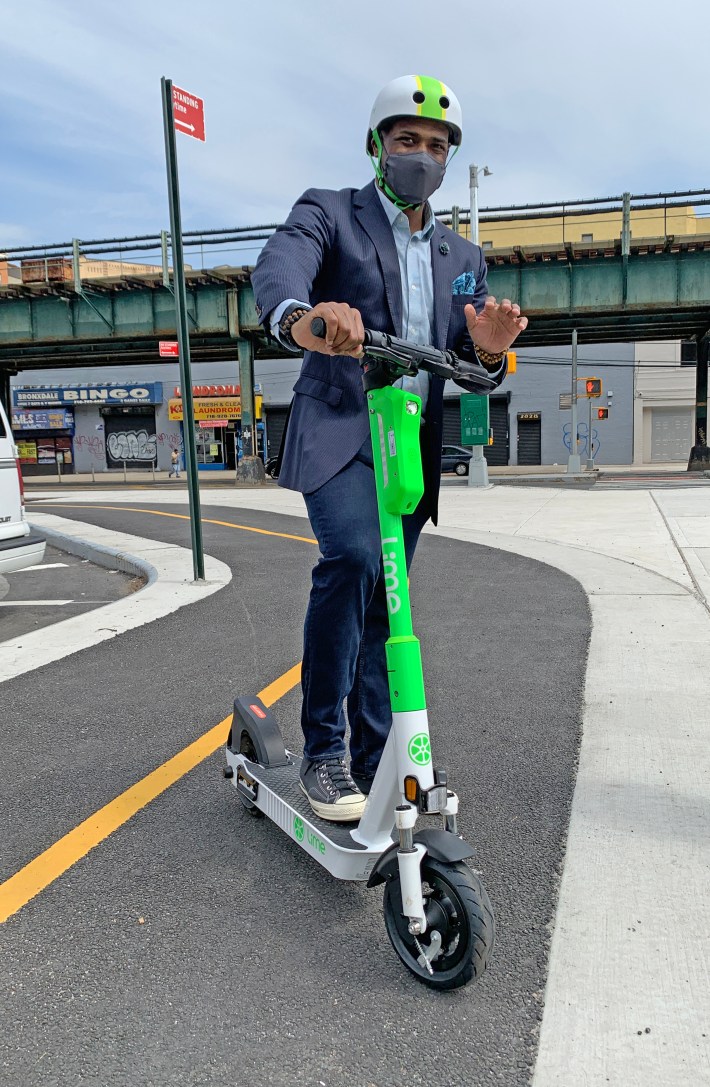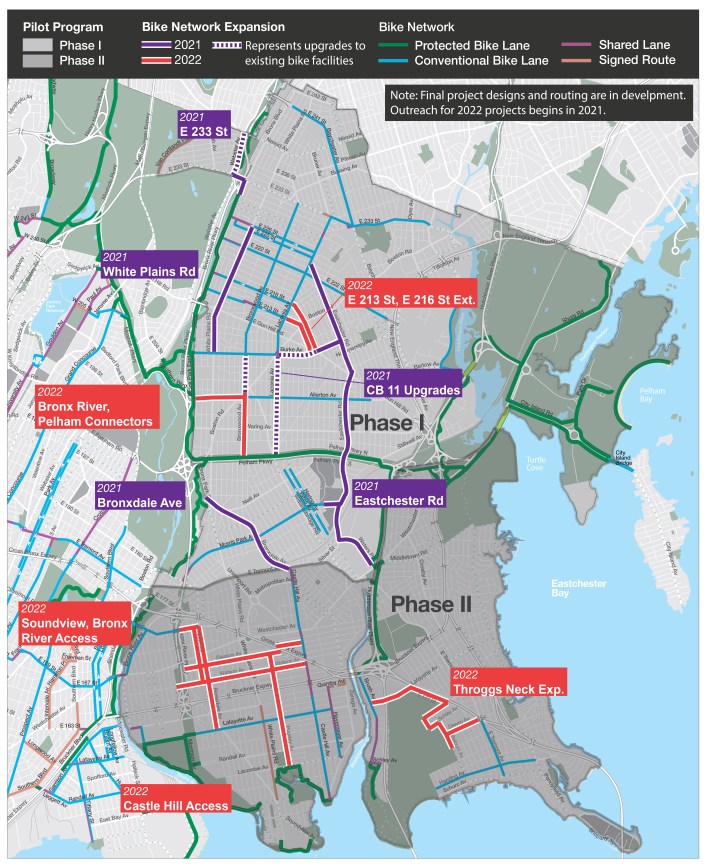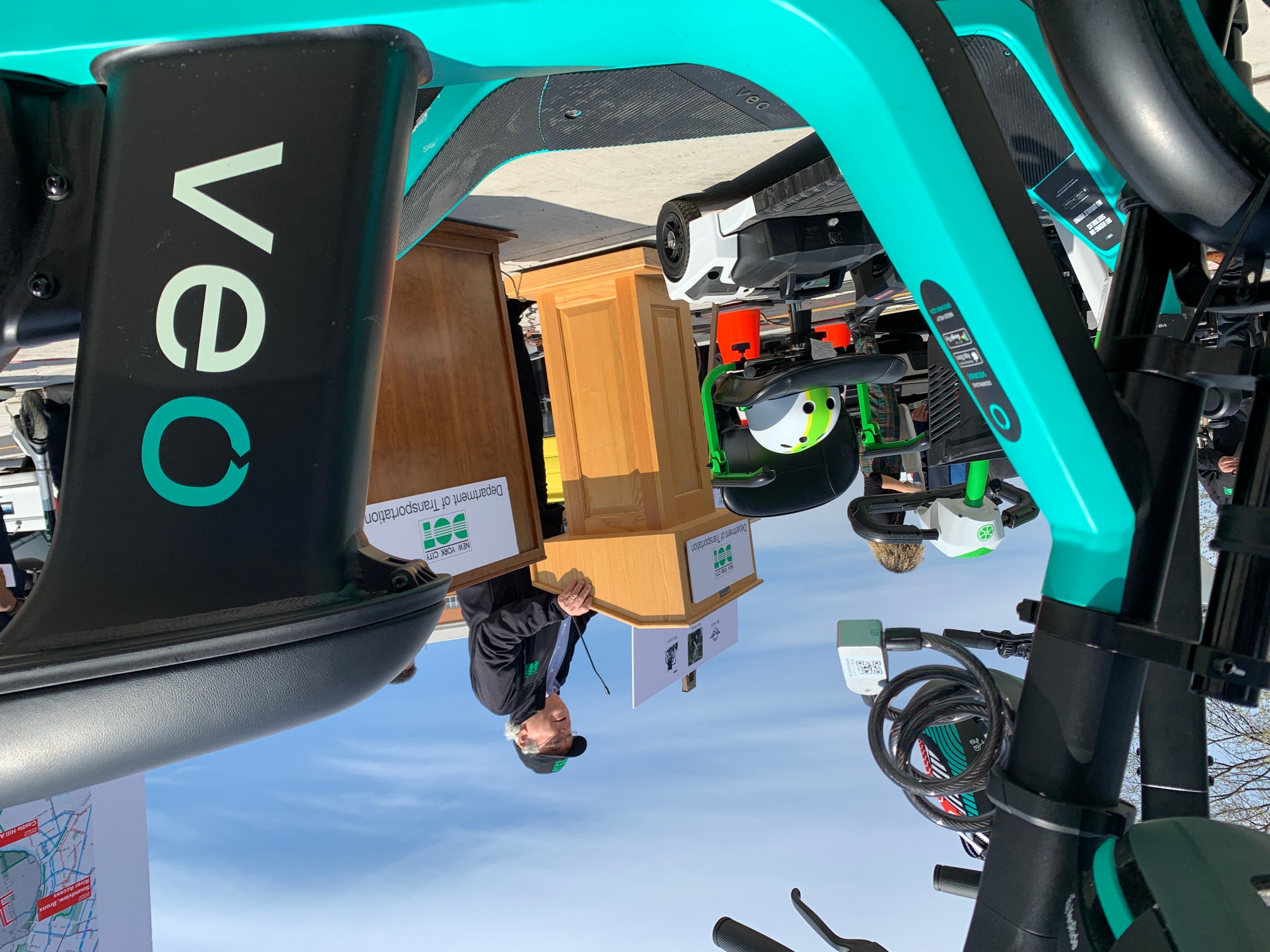They say it'll be worth the wait.
Years after other cities welcomed (or were overrun with) scooter share companies, the Department of Transportation finally revealed the three companies that will be operating New York's long-overdue, "Welcome to 2016" scooter share pilot program in The Bronx. And the winners are: Lime, Bird and the relative newcomer Veo.

DOT Commissioner Hank Gutman said the city benefited from waiting because our program will be better. For instance, the city will require the companies to hire real salaried employees (not "gig" workers), allow customers to sue and not be bound by binding arbitration in the event of a dispute, and provide hundreds of accessible models.
Each of the companies will deploy 1,000 scooters, plus accessible models, such as those with wheelchair attachment or seats, in the Phase I zone (see map below right).
"We may have been beaten to the punch by other cities, but we've learned from their experiences, and we're imposing restrictions that they didn't include," Gutman told the vaunted New York press corps at a launch event near The Bronx Zoo. "This will create a lot of good jobs."
More details emerged about the scooter program itself:
- Each scooter will have a beginner mode, which will cap speeds at 10 miles per hour until a newbie has used scooters for at least 30 minutes. Those trips can not be taken during evening hours.
- The program will start "in the summer," Gutman said, after community outreach so residents of the East Bronx pilot zone (see map) become aware of the scooters.
- There will be designated scooter "corrals" for people to leave scooters after a ride and, initially, company employees will be stationed at such corrals to educate the public.
- Each scooter will cost $1 to rent, plus a per-minute charge. Those charges are 39 cents per minute on a Bird or Veo device, but only 30 cents per minute on a Lime device. The companies provide discounts to residents of public housing or for people enrolled in "federal and state assistance programs."
Veo, the newcomer, intends to make its play with sit-down scooters — basically like underpowered Revel mopeds. In a Streetsblog test on Wednesday, the model showed substantial power on hills, though unlike Revel, these machines (like all in the program) are capped at 15 miles per hour.
Lime and Bird operate in scores of cities worldwide. Both have created new, beefier versions of their stand-up scooter for the pilot program. All of the companies tout their great features (Veo is excited that it's scooters have directional signals; Bird says its battery is the best; Lime swears by its accessibility program and the ability to use its scooters without a smartphone or if a person is unbanked.)
"Bird's mission is to get people out of cars and there is no better place to do that than in the Bronx," Bird's political guy, Sam Cooper, said.

Getting people out of cars is nice, but it won't happen if scooter users don't feel safe. To address that, the DOT announced several bike lane improvements in The Bronx, though some were already in the pipeline. The companies have also agreed to provide in-person lessons (though those are voluntary). Gutman said he wouldn't get on one of the scooters — and, indeed, he did not mount an electric ride during Wednesday's photo op — until he had taken such a course.
The city said it would conduct the pilot program through the rest of the year, with a second Bronx zone to be added next year. The next mayor would have to decide where and how the program expands across the city, Gutman said under questioning.
"We want to see how well it works," Gutman said. "Is it safe? Is it equitable? Is it popular? Does it solve a transportation need?"
But for the most part, all three companies were greeted warmly by Bronx politicians.
"Finally, we're getting something positive in The Bronx," said Council Member Francisco Cabrera, whose 2020 bill created the scooter-share pilot.






